The methaqualone claim is not exactly true, or, like with fentanyl, a sliver of the larger story. But it starts with the idea that China was using heroin to fight American imperialism in Indochina, covered in books like Red Cocaine, which suggests Zhou Enlai was running things. 

https://twitter.com/dylanleviking/status/1397585074069987328
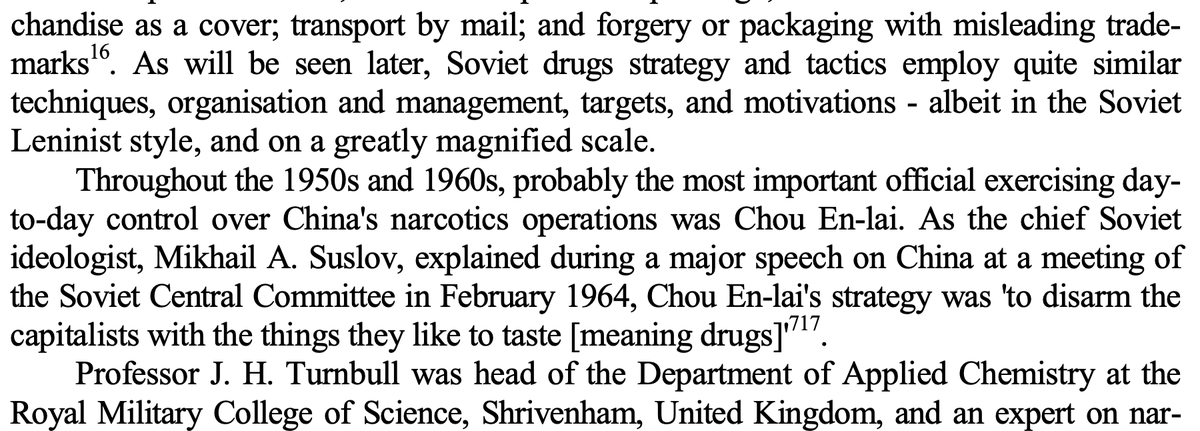
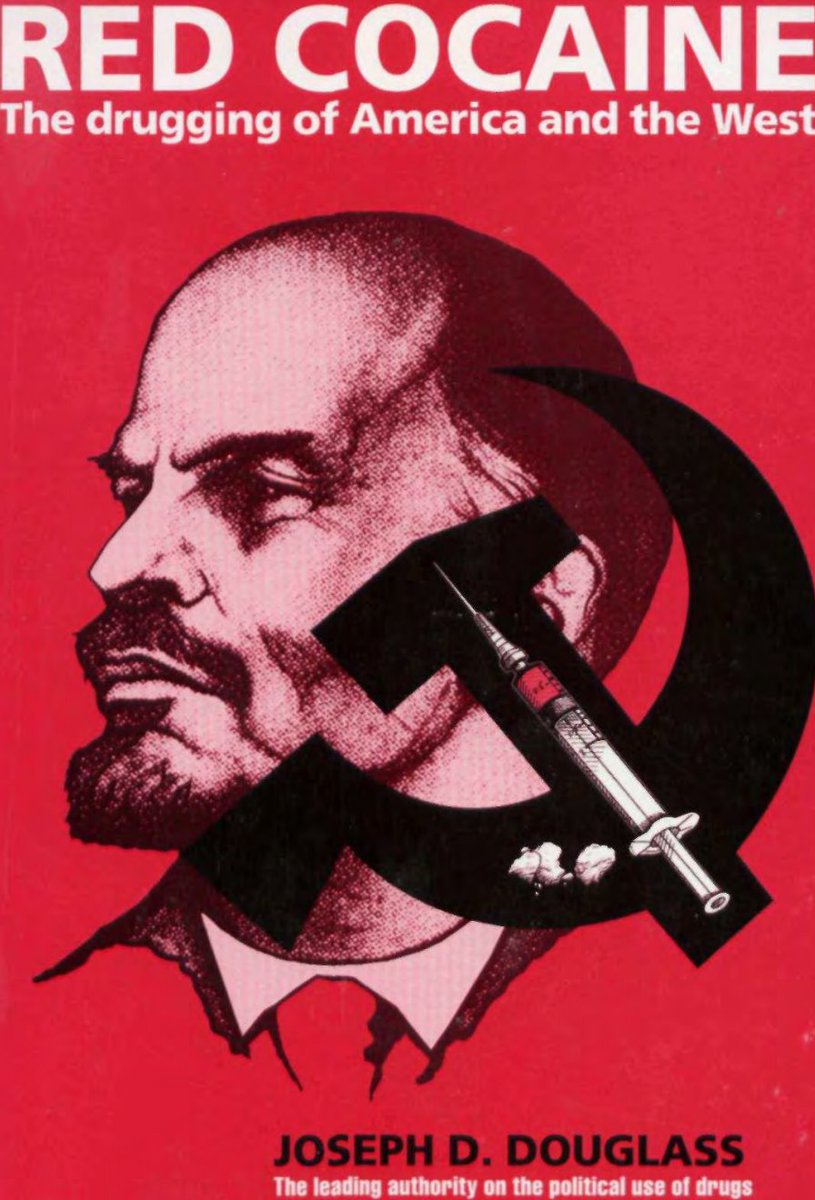
The idea of heroin coming from Red China has less truth than the methaqualone story. But through the 1950s and '60s, anticommunism was a reliable way for Harry J. Anslinger to sell war on drugs—and, then, for the China lobby to sell their war on communism. 



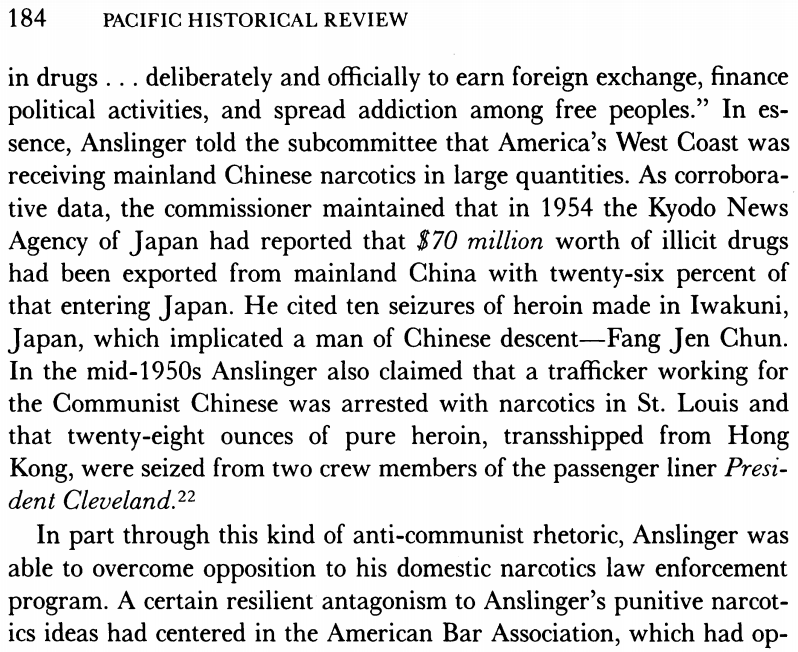
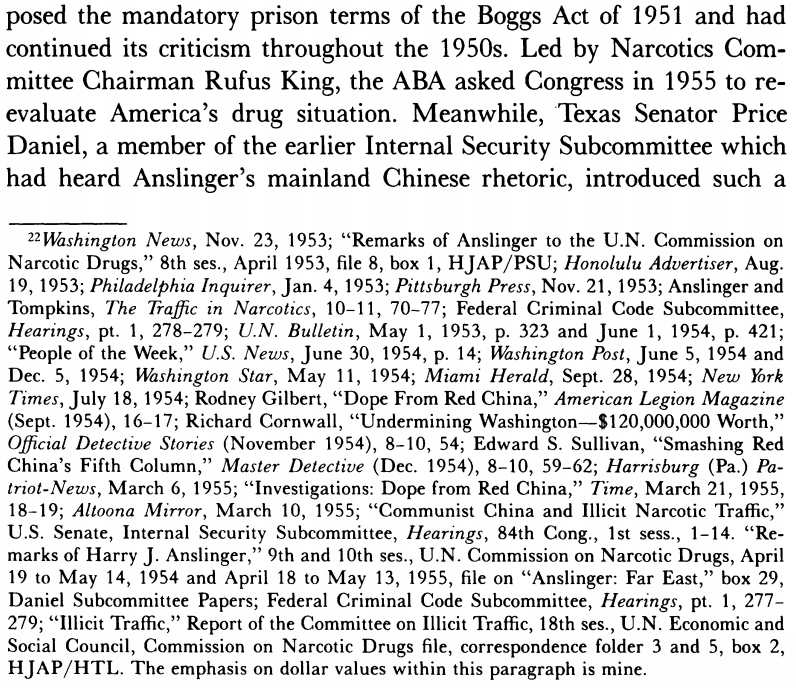
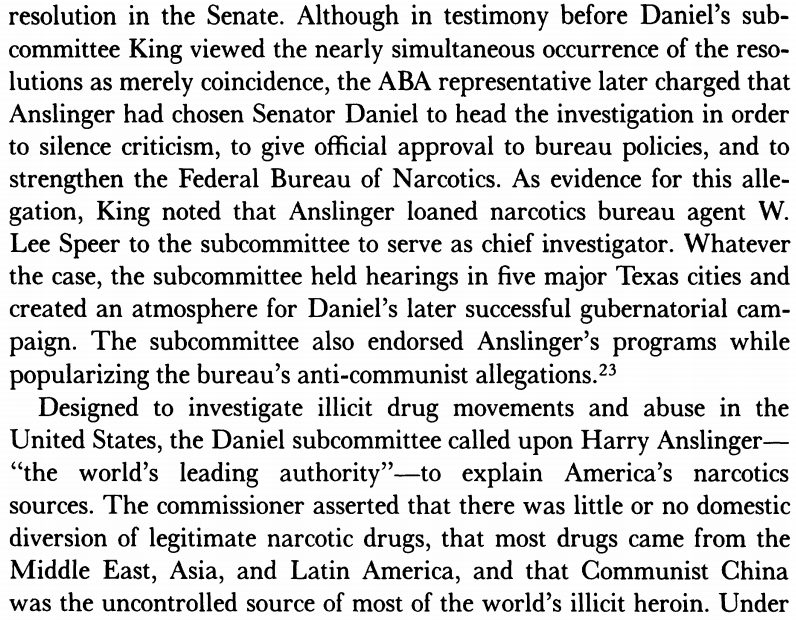
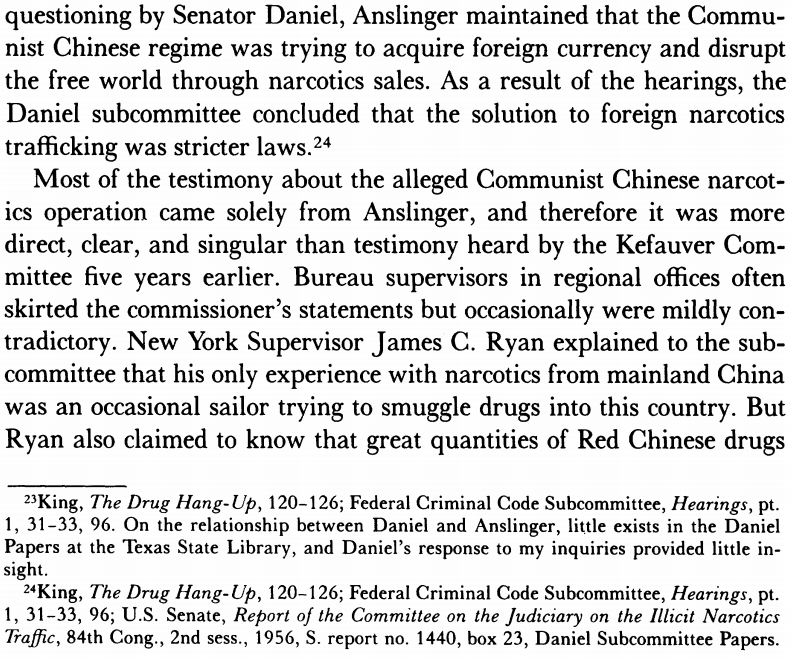
British customs agents reported no seizures of heroin from Red China after 1949, for example, and it didn't appear that they were just missing shipments. ("Bureaucratic Cold Warrior: Harry J. Anslinger and Illicit Narcotics Traffic"). The story kept going, though. 



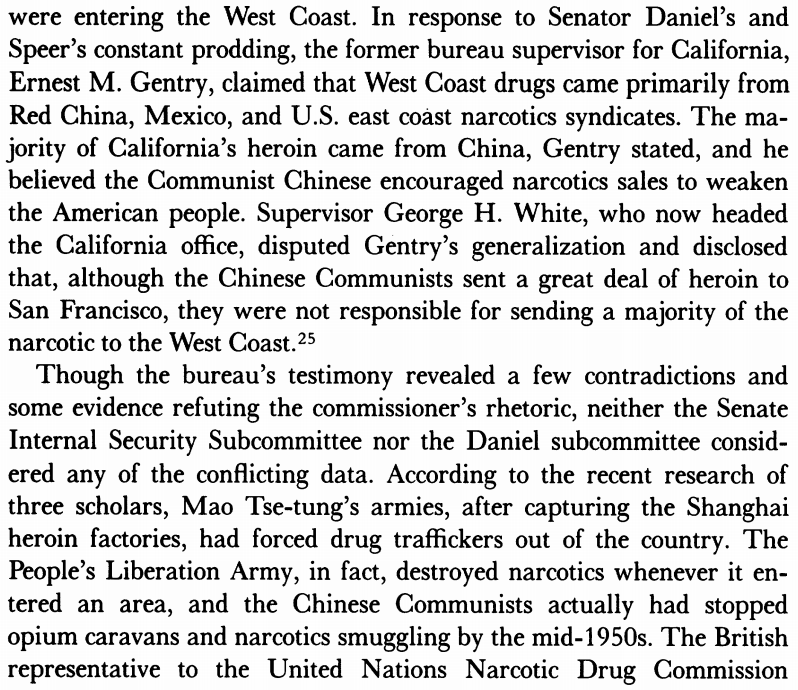
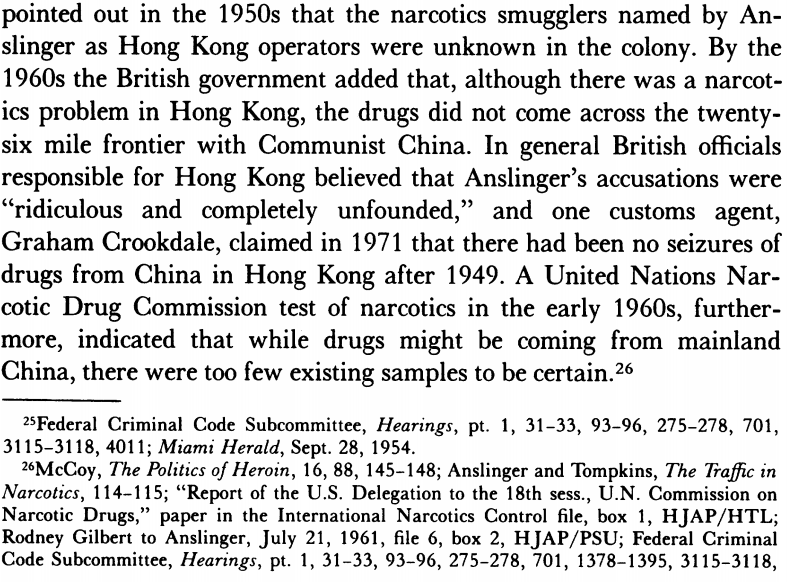
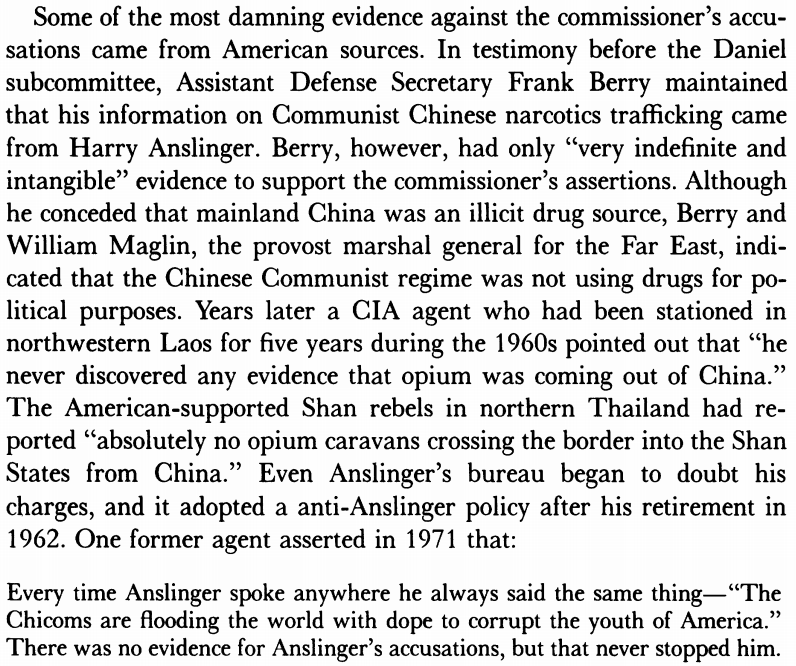
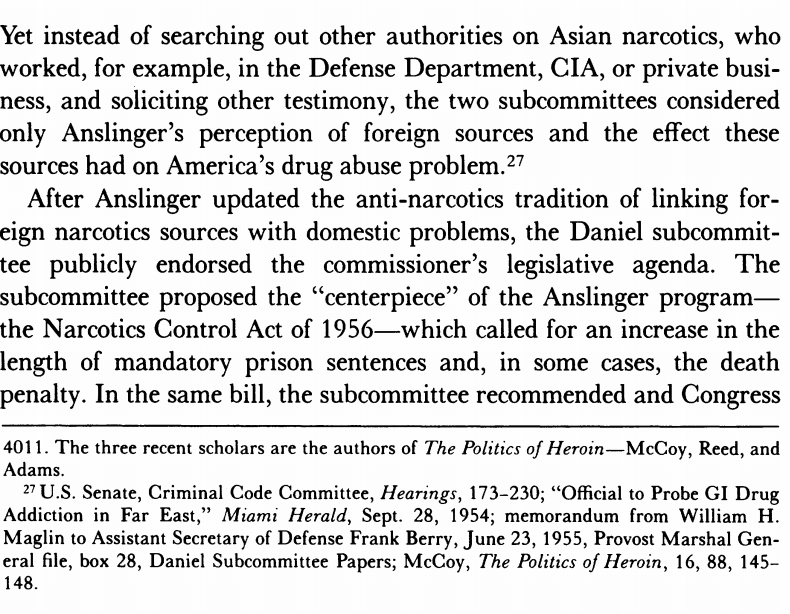
After the United States was fully committed to Vietnam, it jumped from anticommunist pamphlets and China lobby statements to mainstream outlets. The CIA, actively involved in the heroin trade themselves, were skeptical, dismissing the idea outright in this memo for John Maury. 



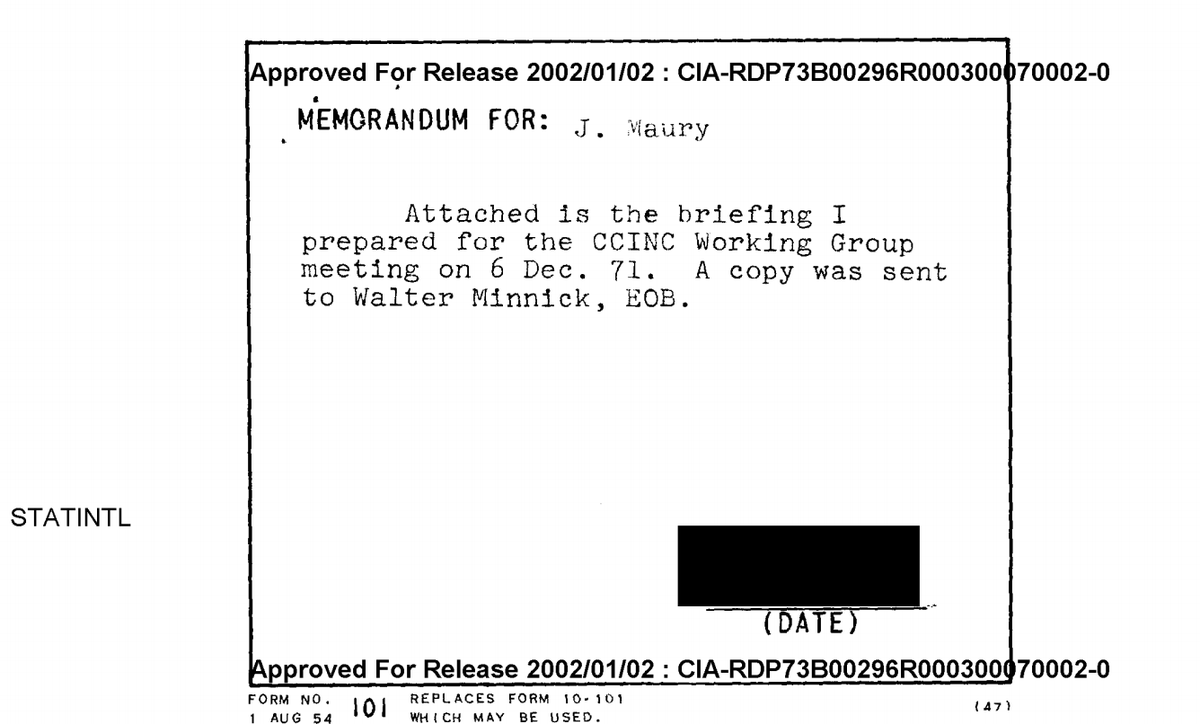
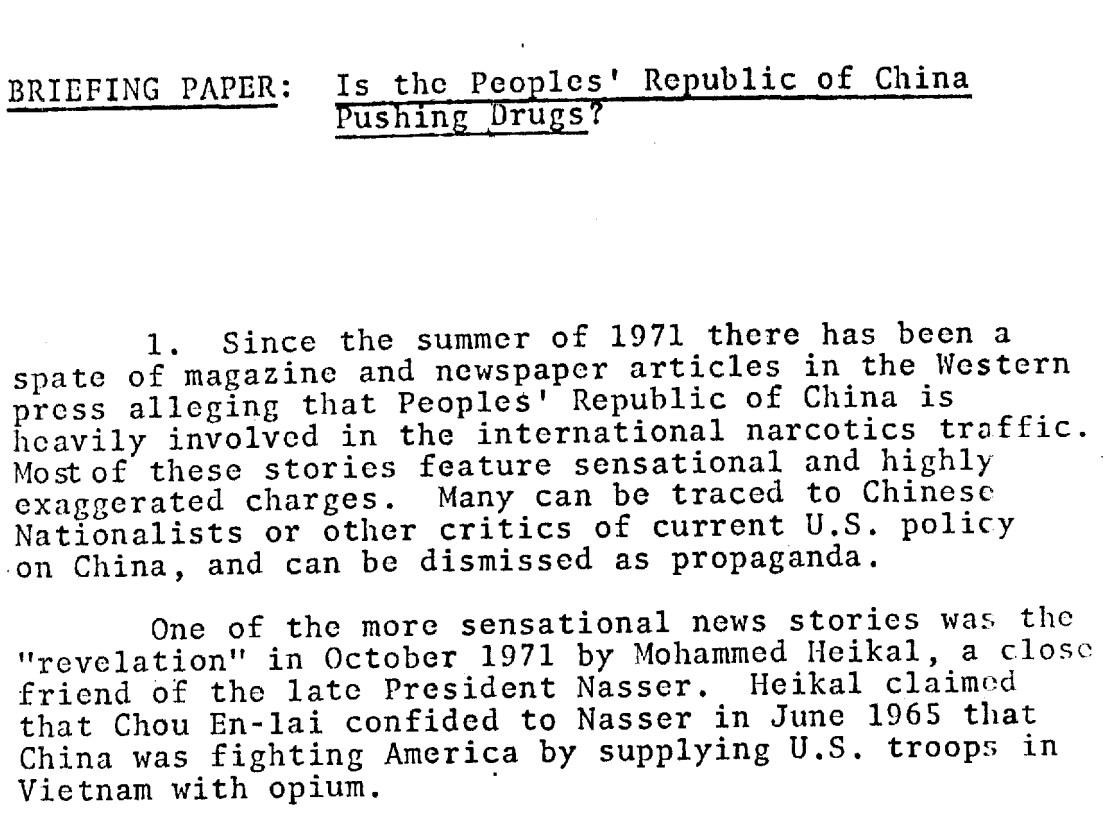
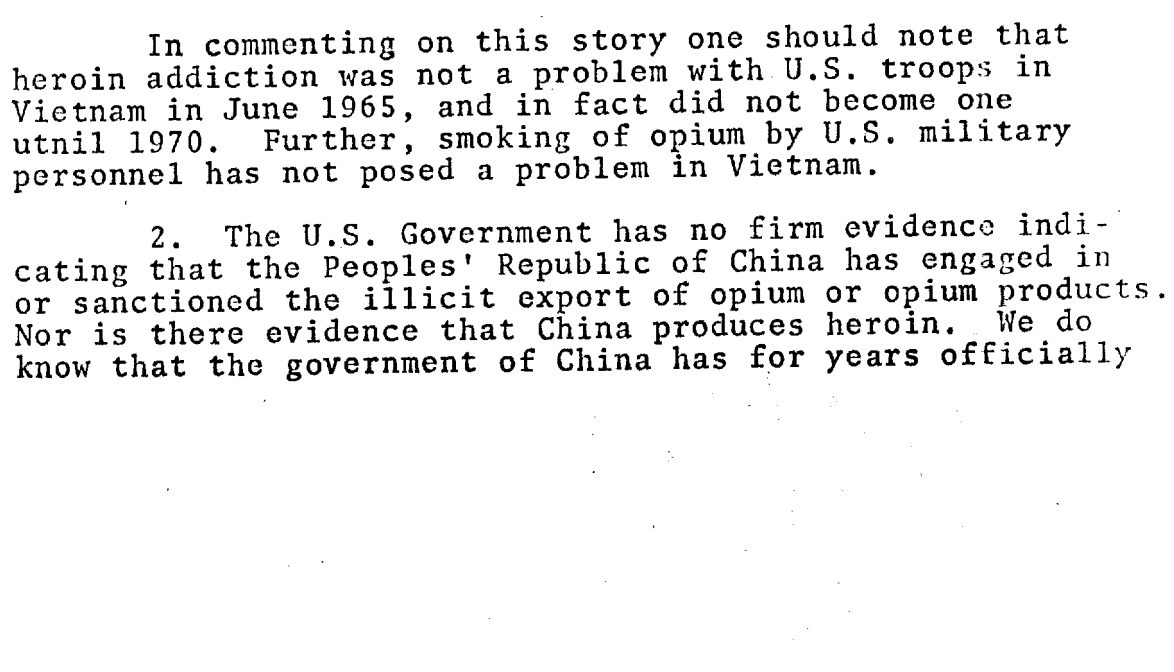
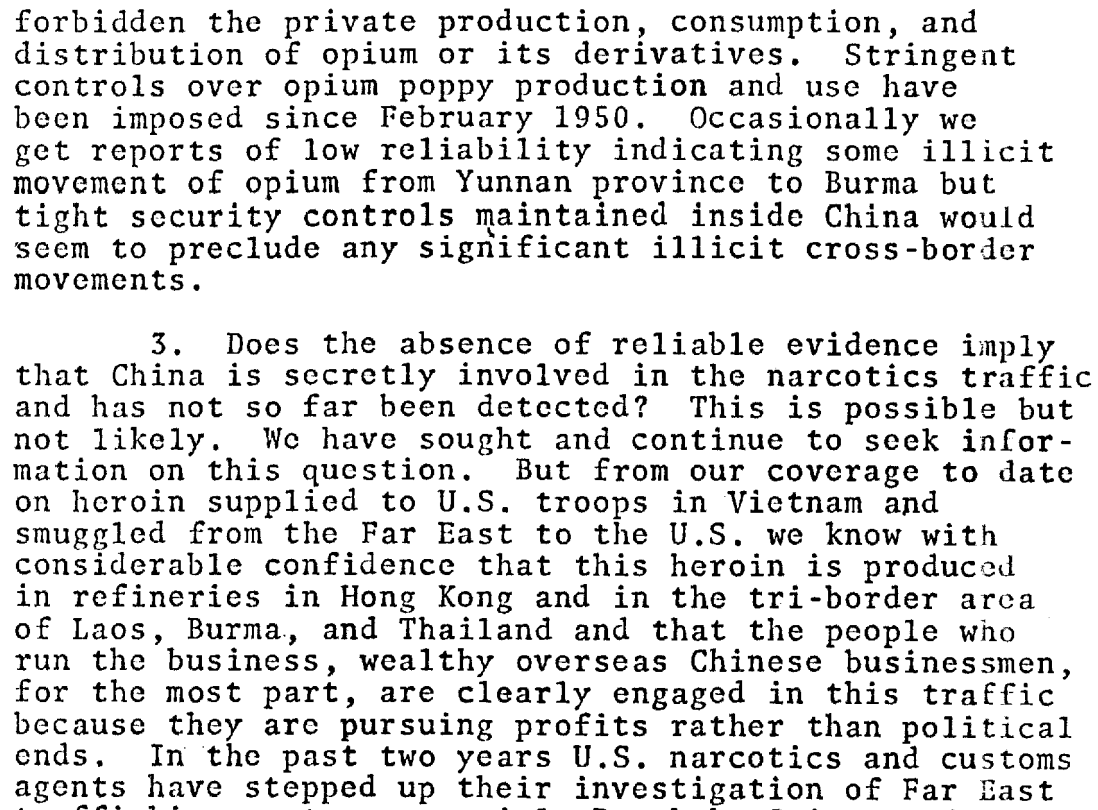
You can see the memo here: cia.gov/readingroom/do…. The idea of heroin coming from China conflicted with a CIA narrative that little heroin was coming from the Golden Triangle or that local governments might be involved. Second two scans: cia.gov/readingroom/do…. 



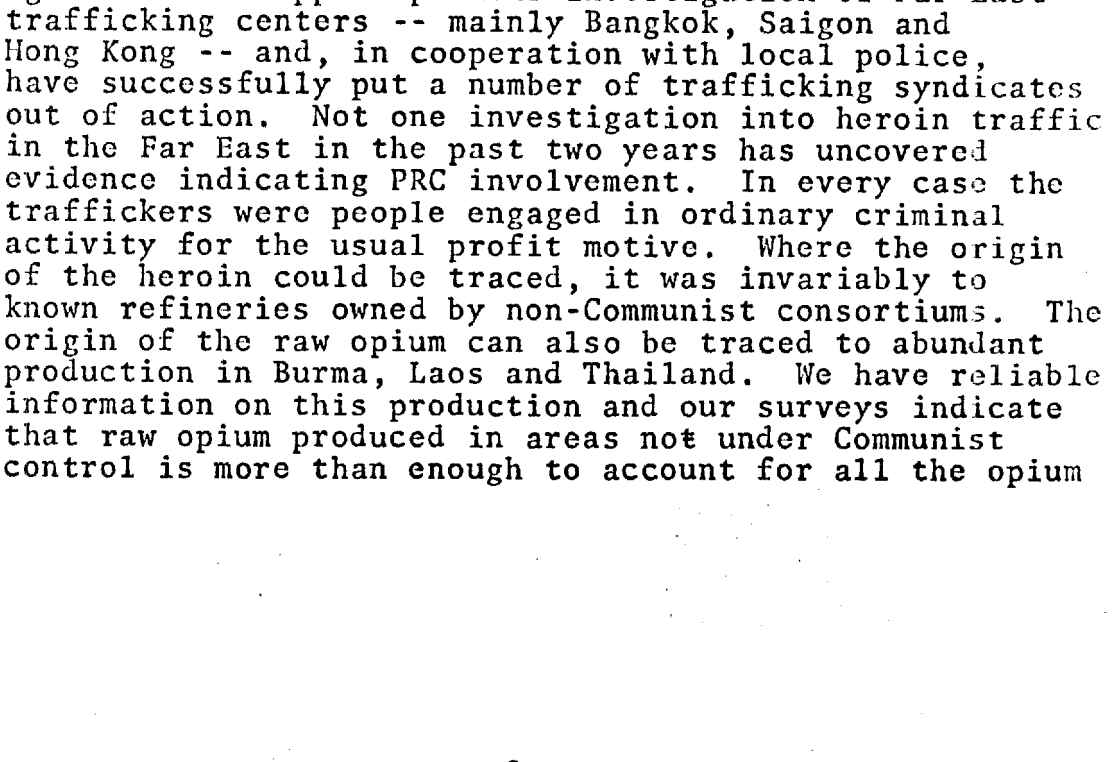
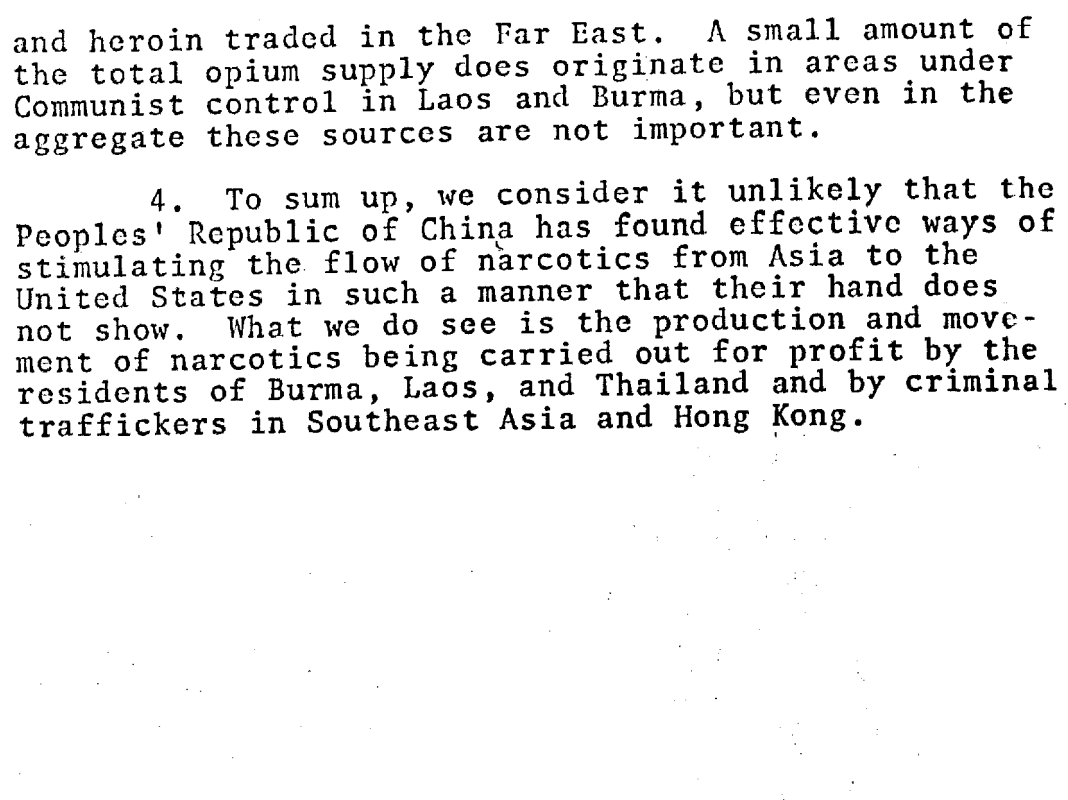
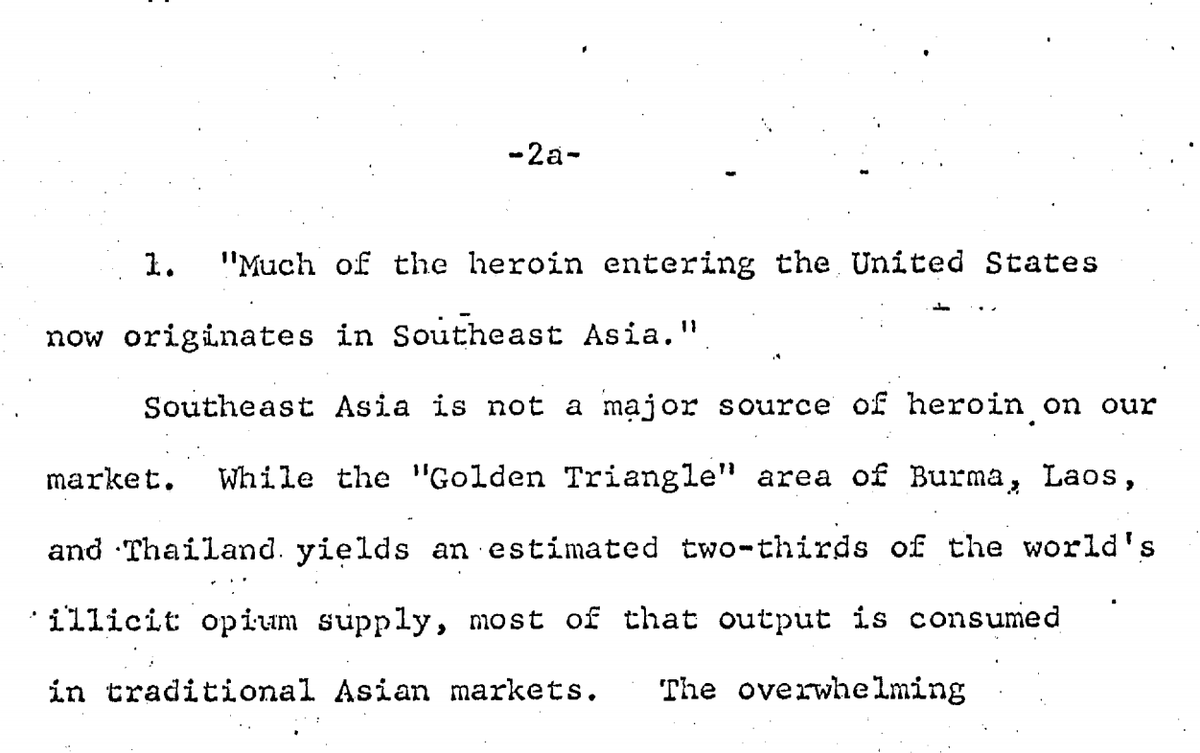
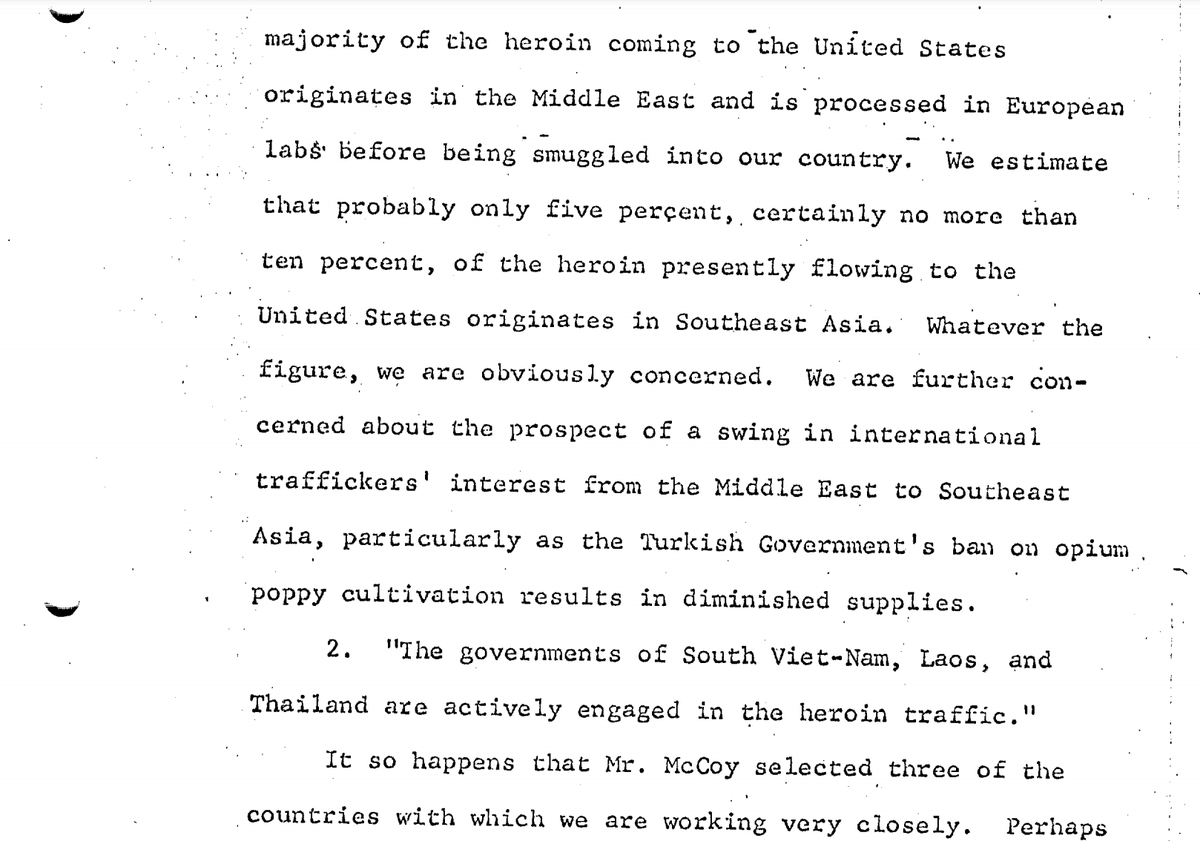
There are quite a few conservative pieces on Nixon taking Chinese narcostate kickbacks. I wonder what whoever catalogued this back in the day at the CIA was thinking. Even if it was false, the idea that China had some ideological and financial interest in pushing dope continued. 
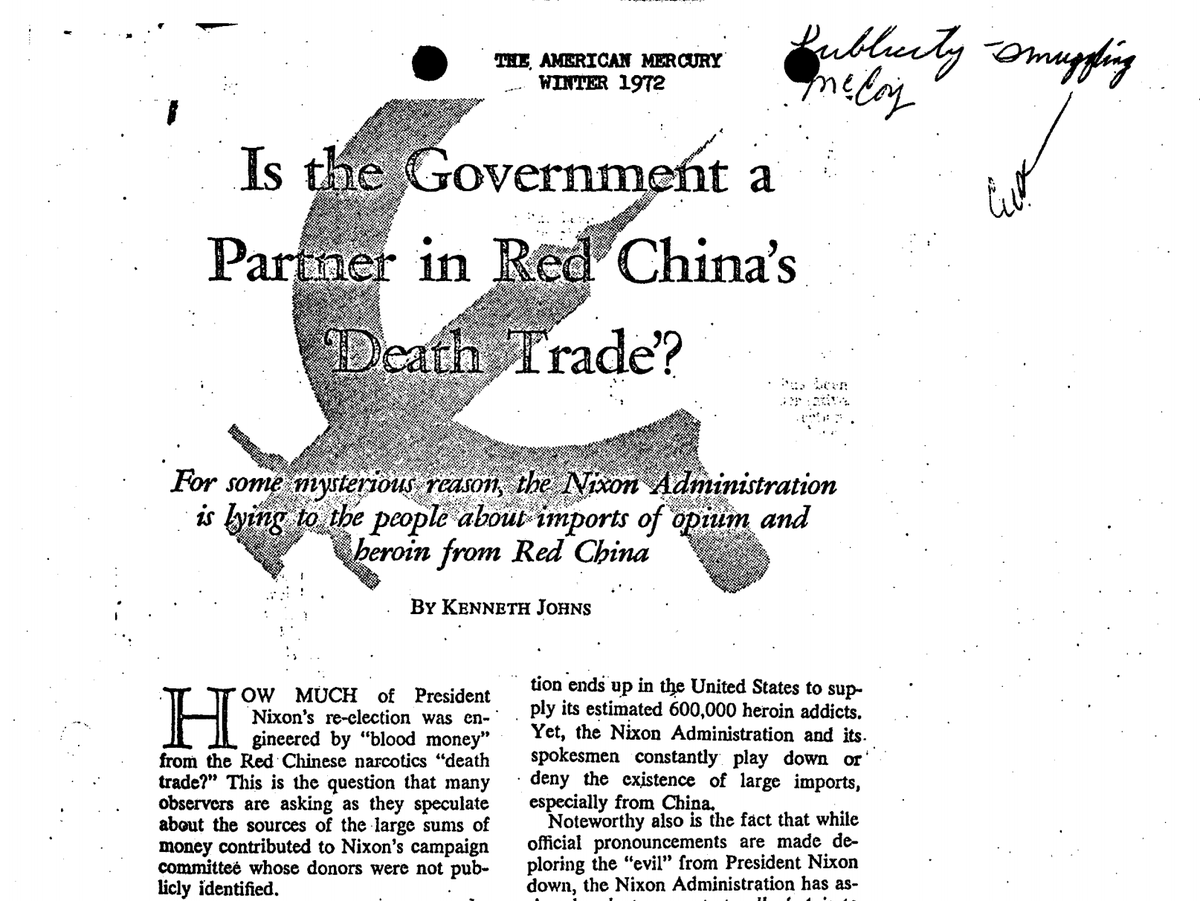
There's a lot of academic work on China and "narcocommunism." Look up: "The cost of containment: The Cold War and US international drug control at the UN, 1950–58" by David R. Bewley‐Taylor and "Geopolitical imagination and the US war on drugs against China" by Xiaobo Su (below). 



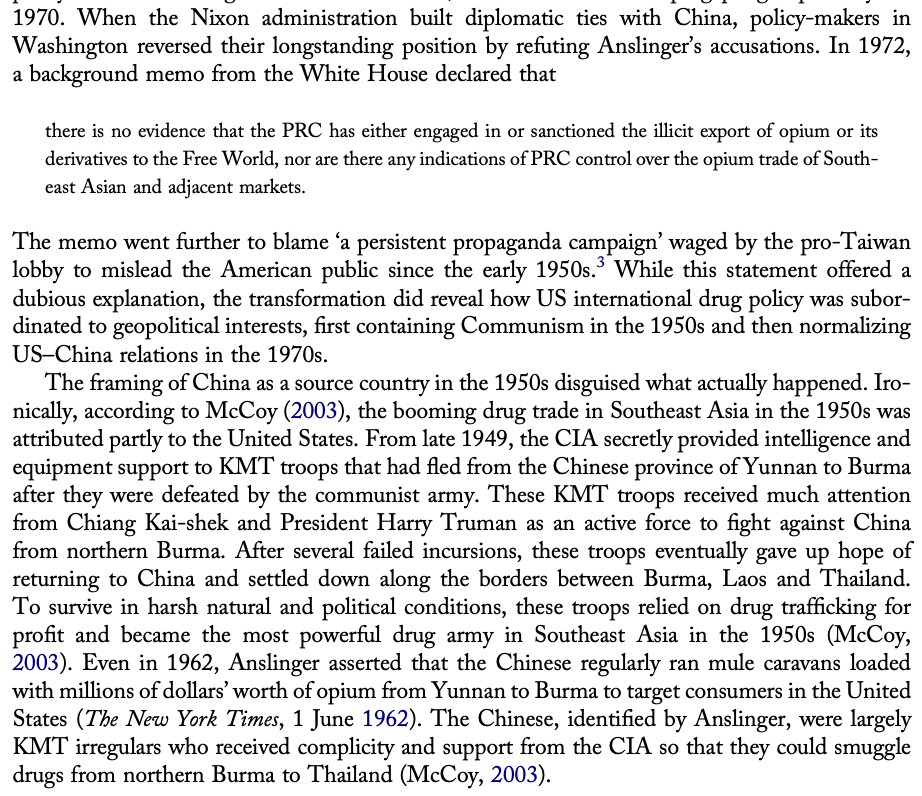
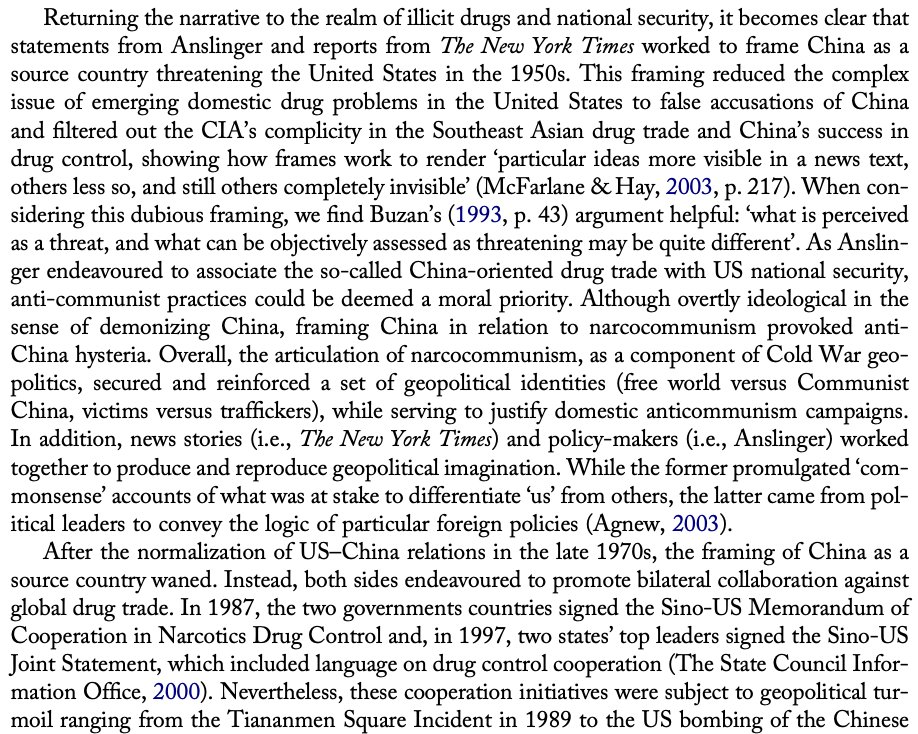
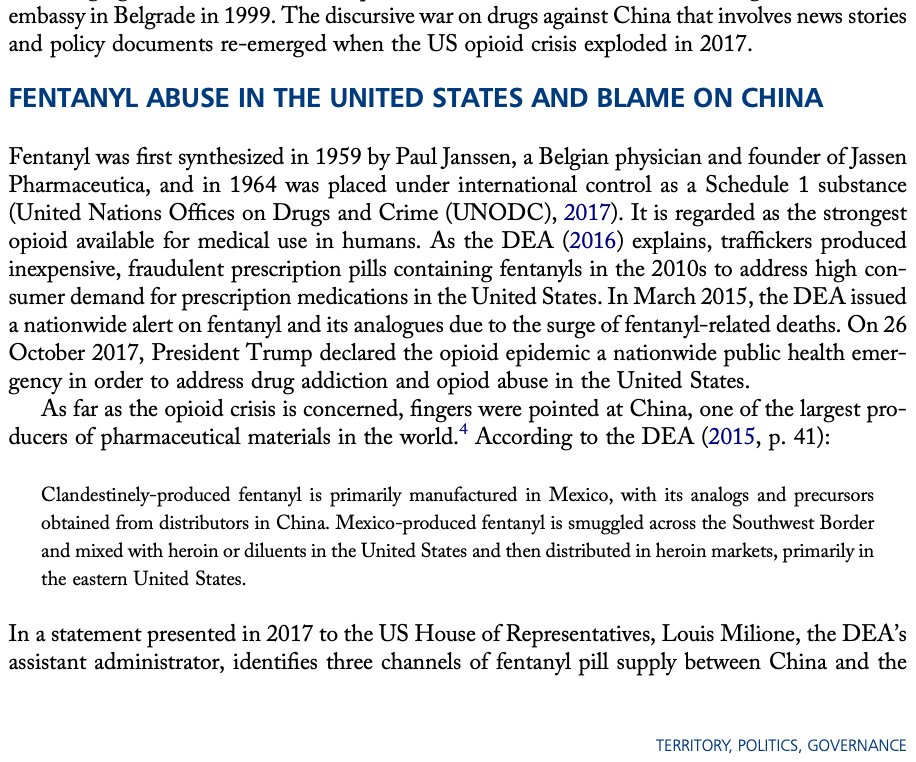

• • •
Missing some Tweet in this thread? You can try to
force a refresh





















